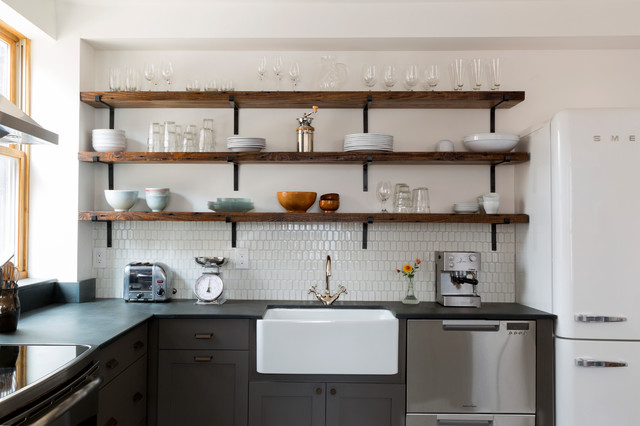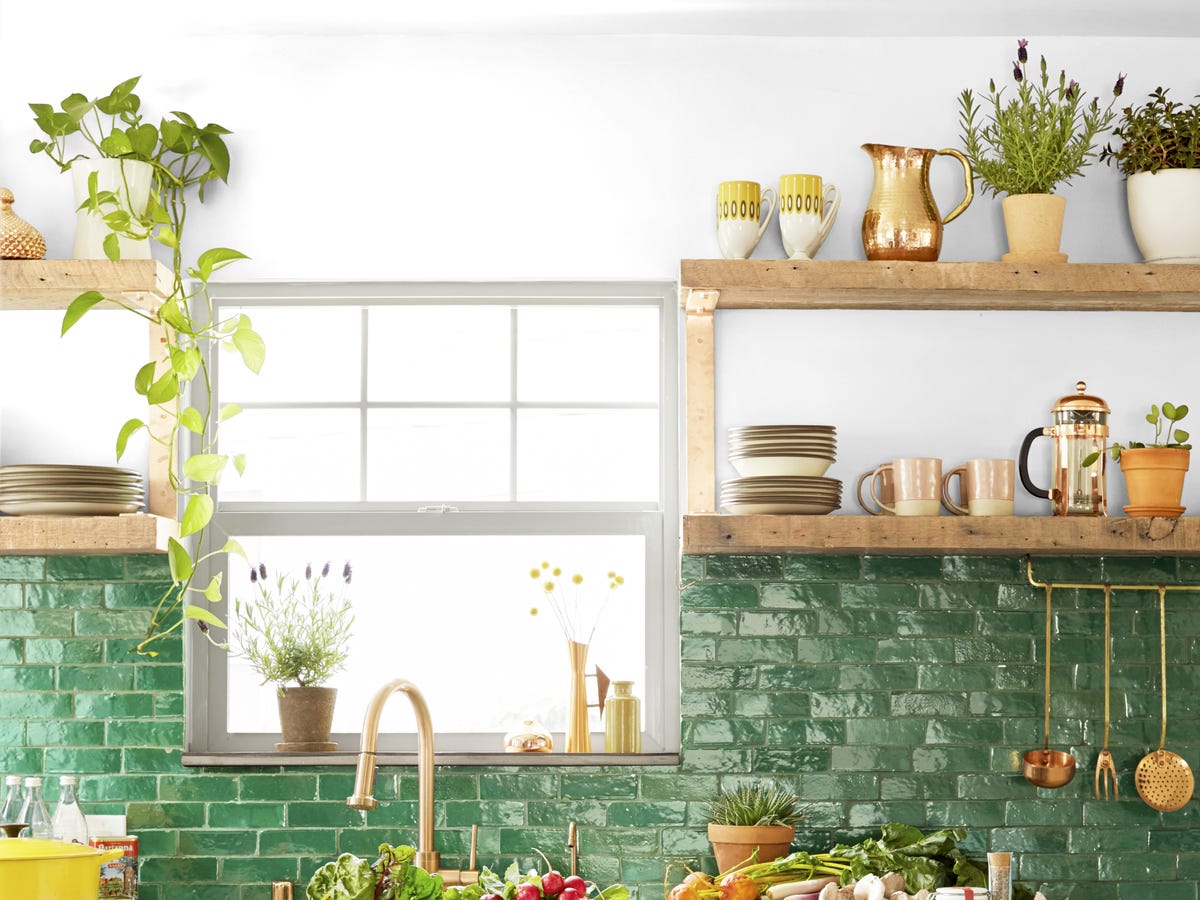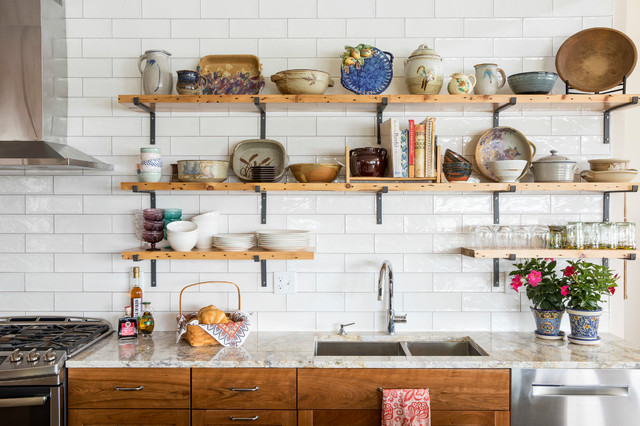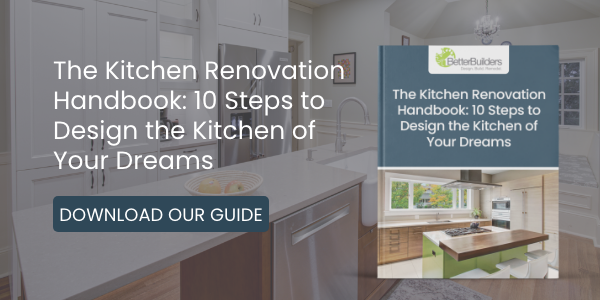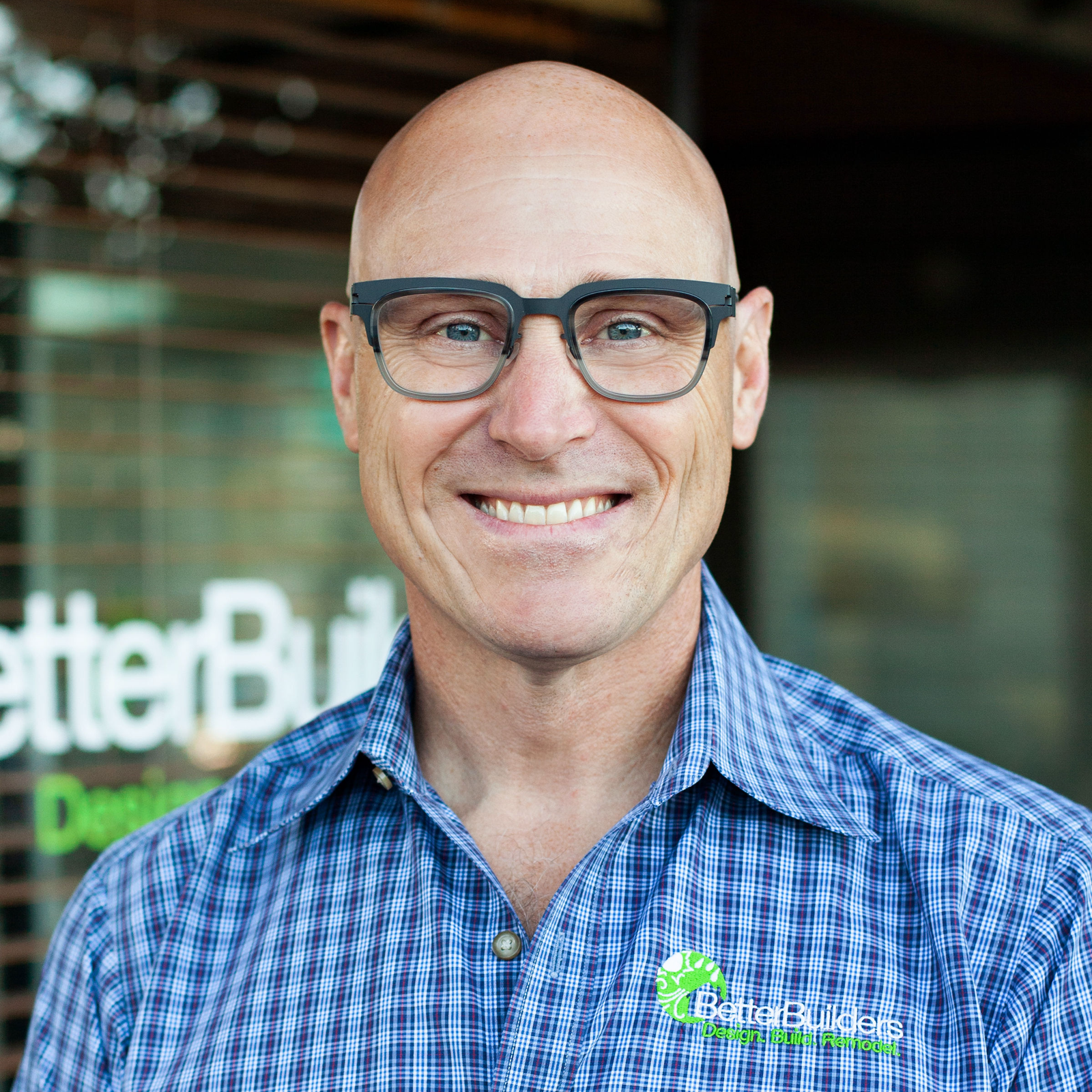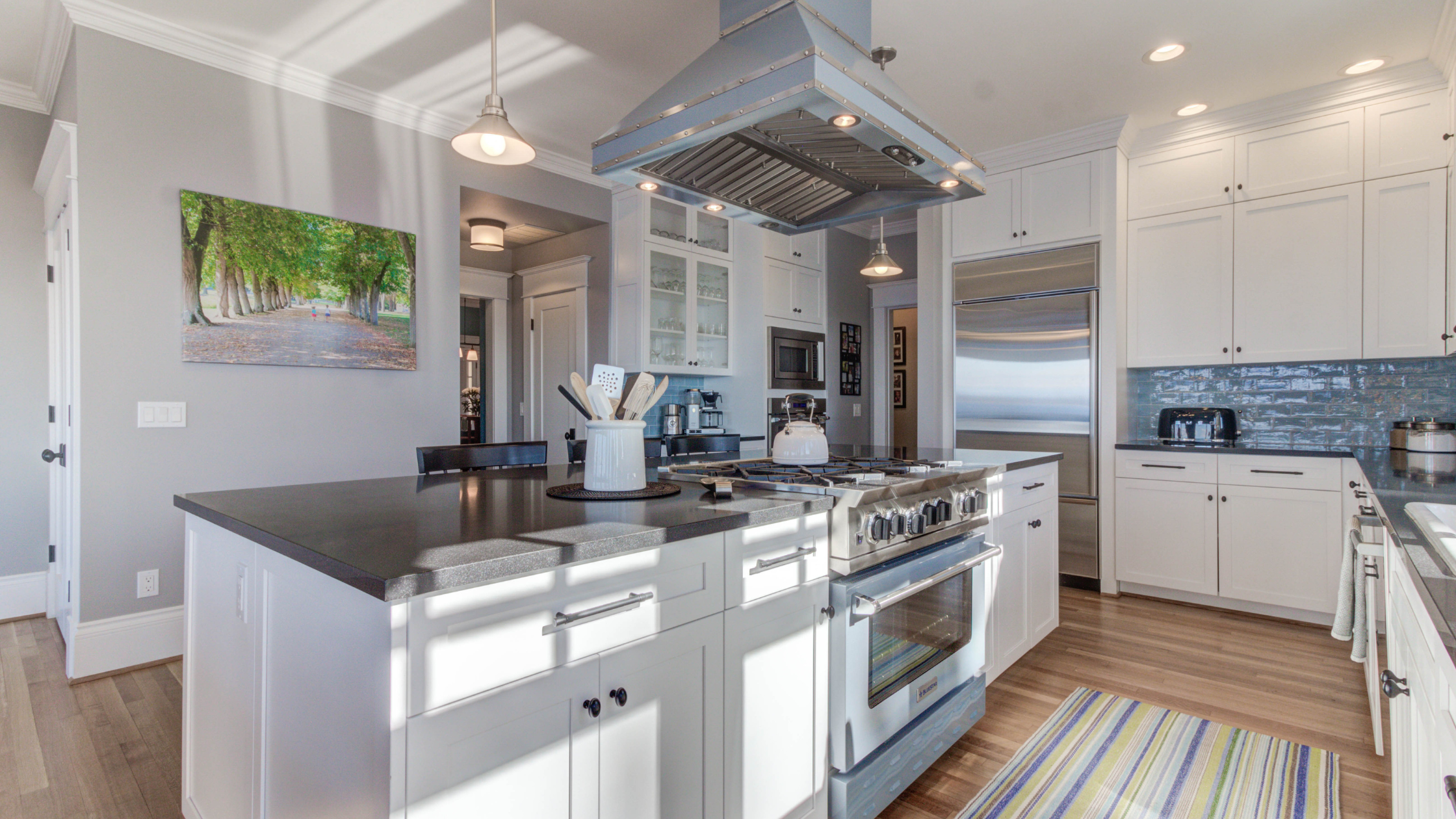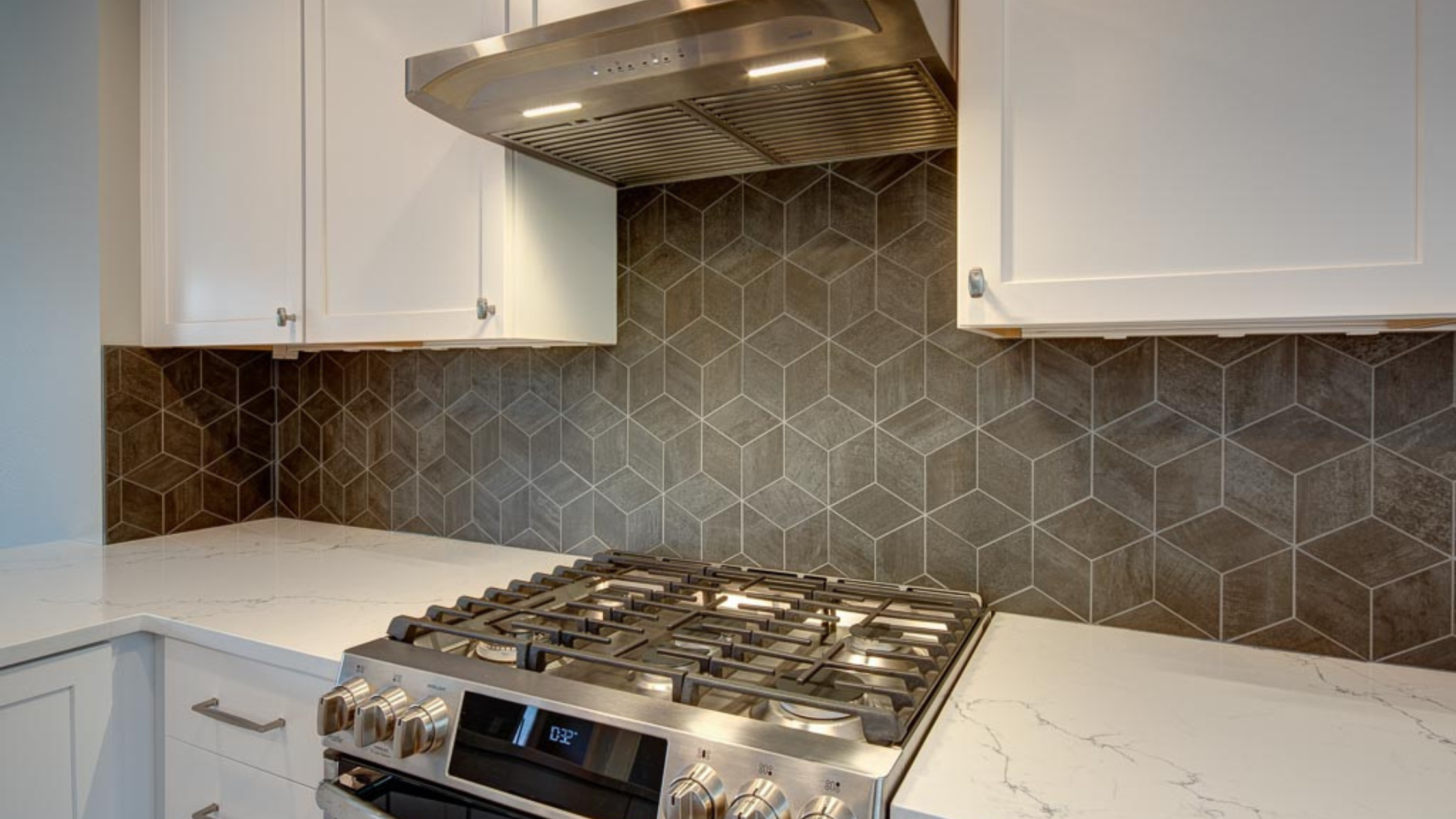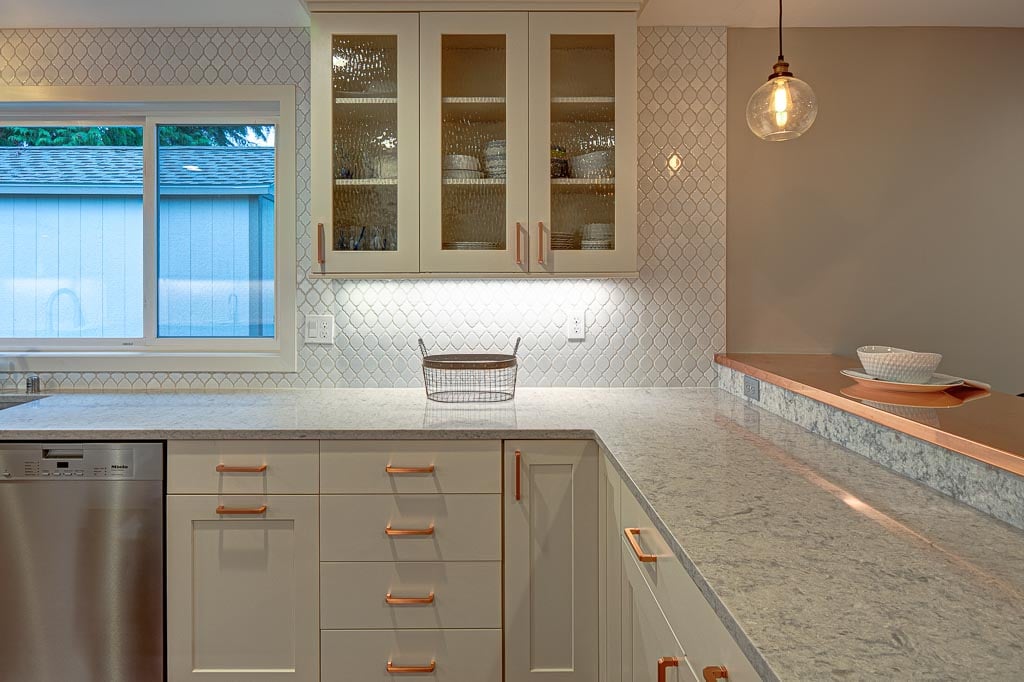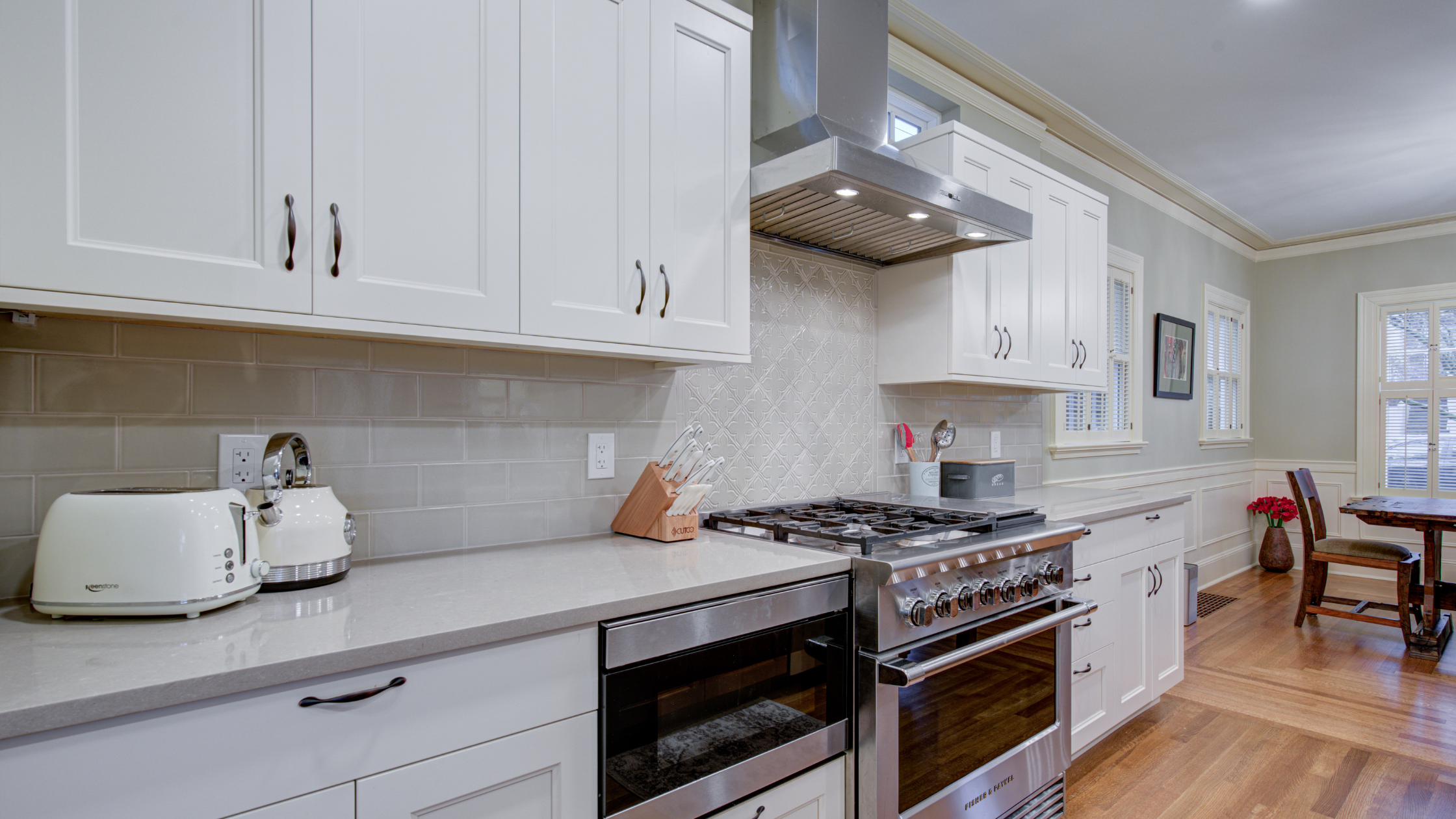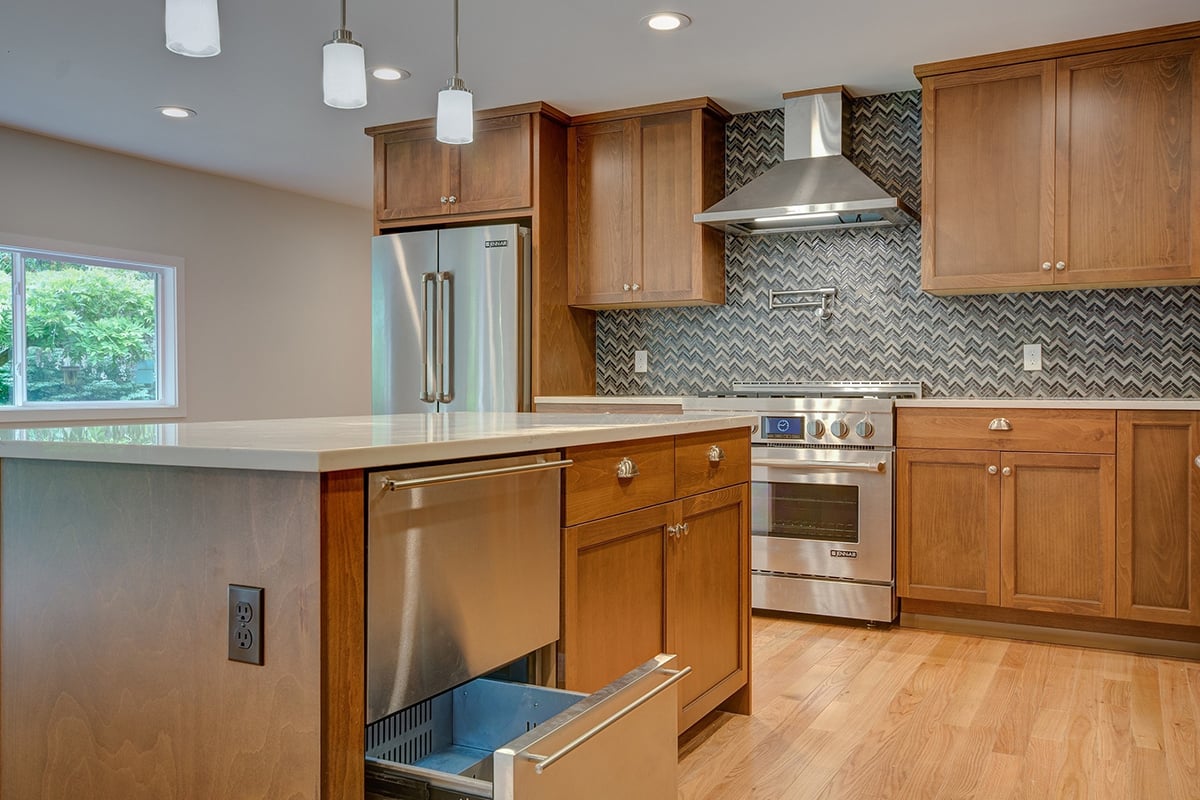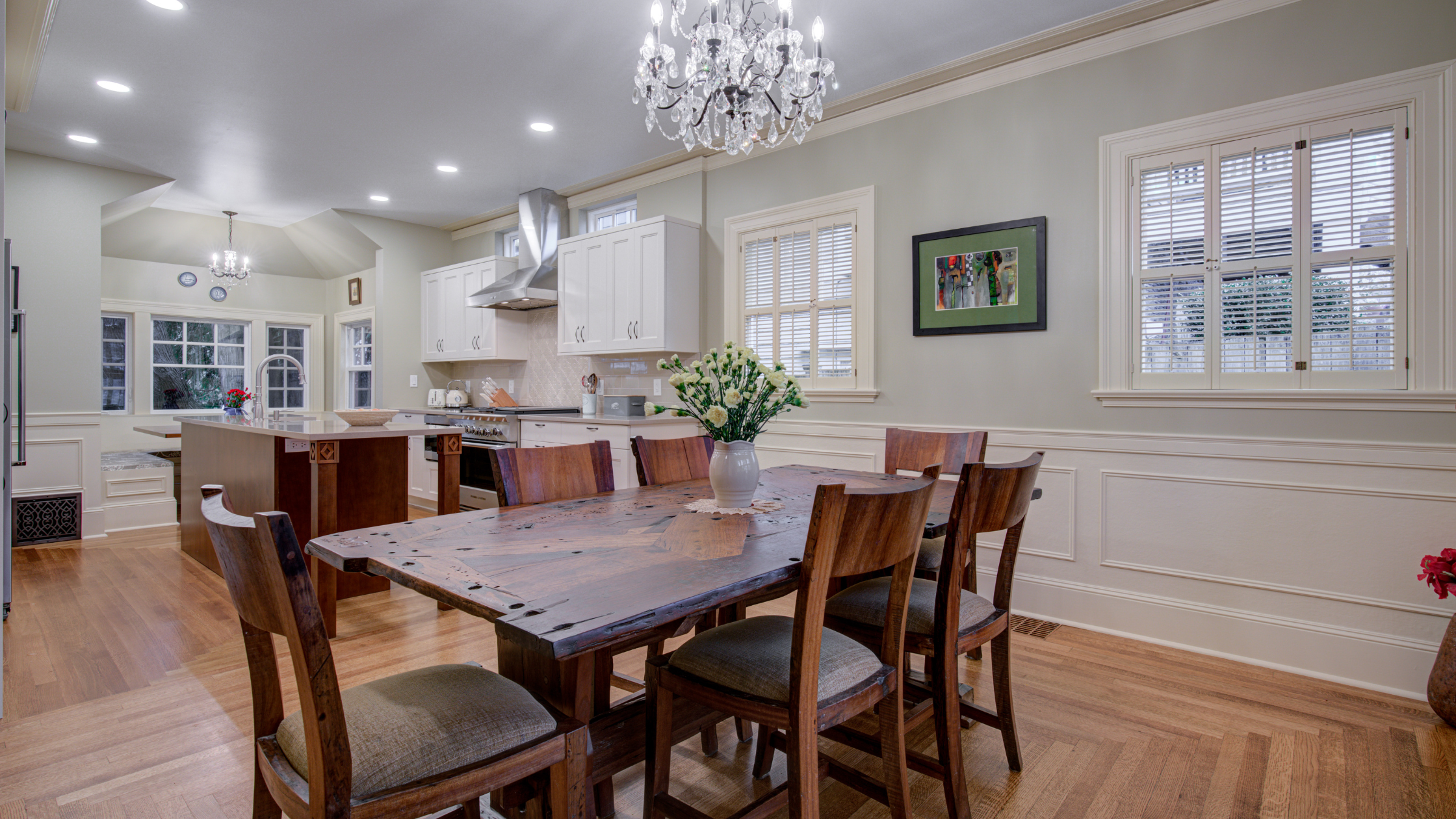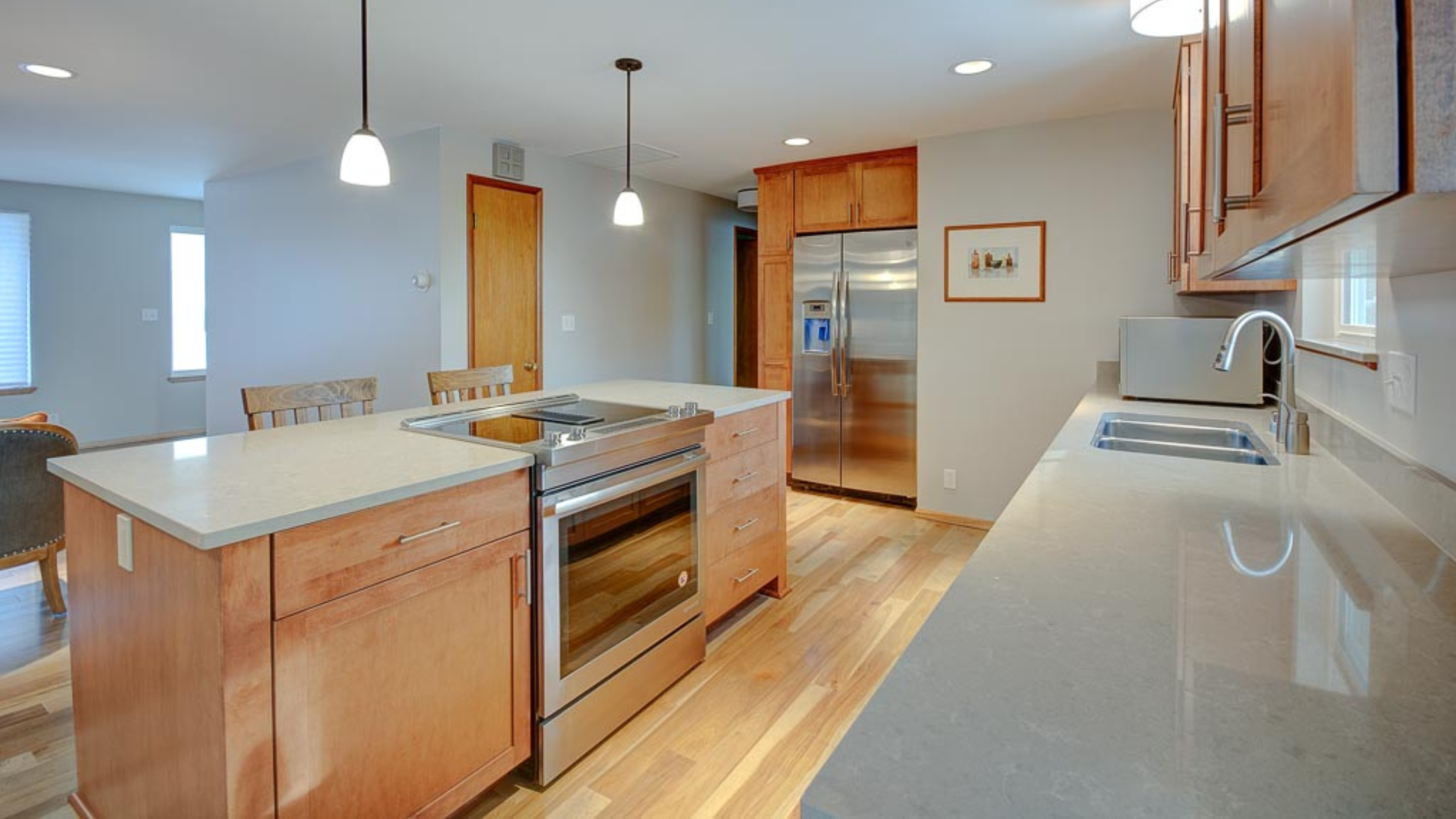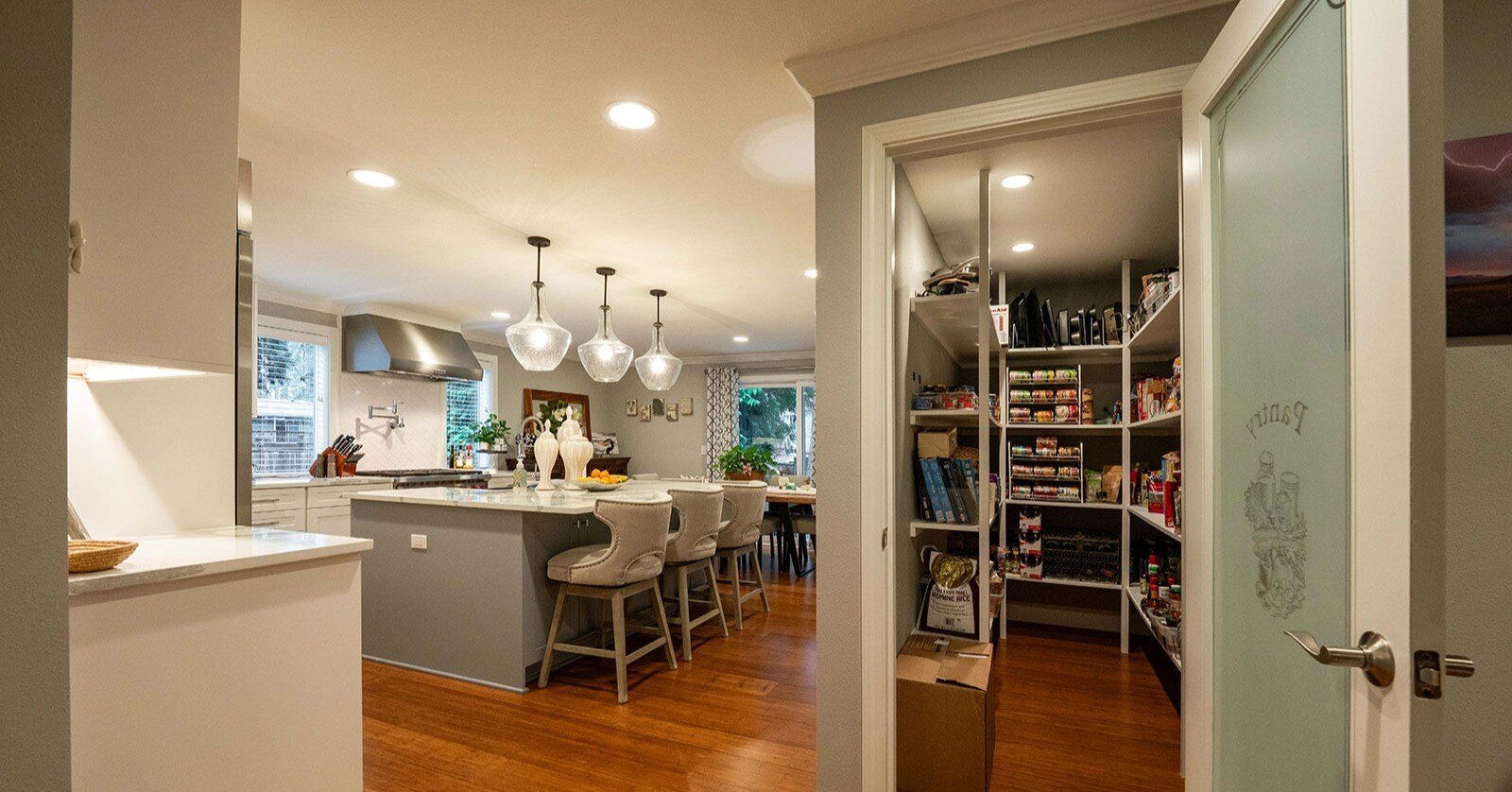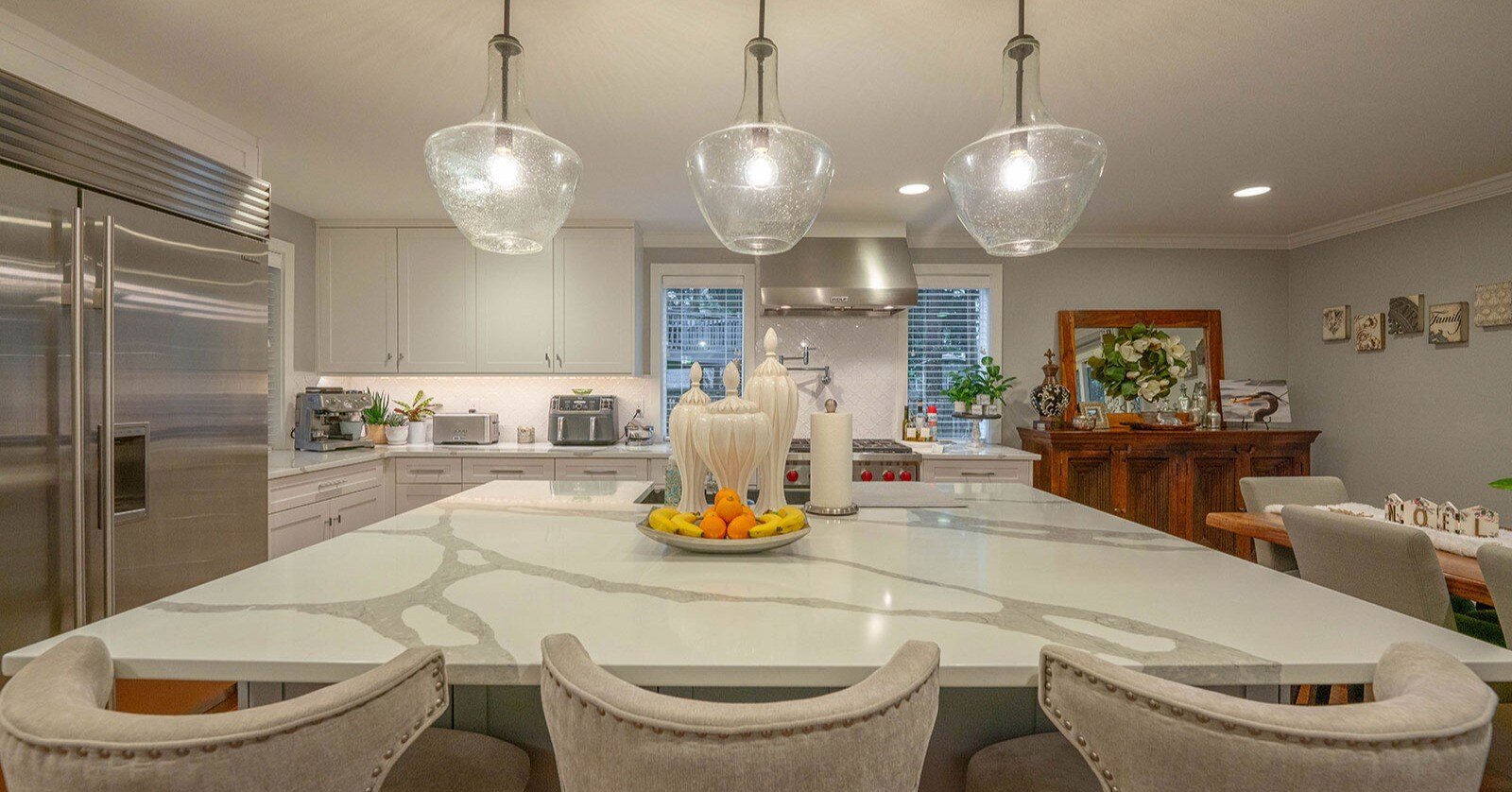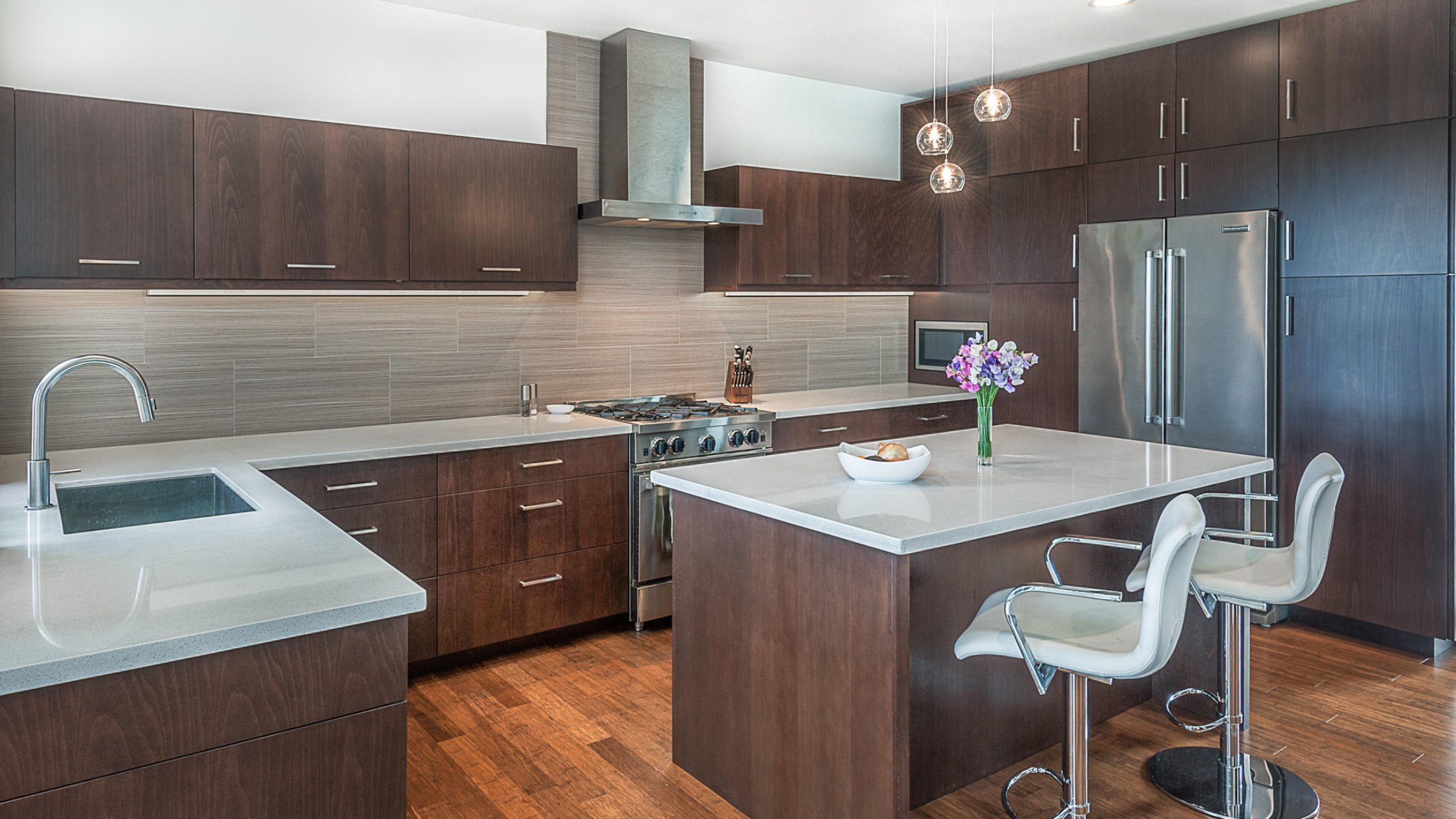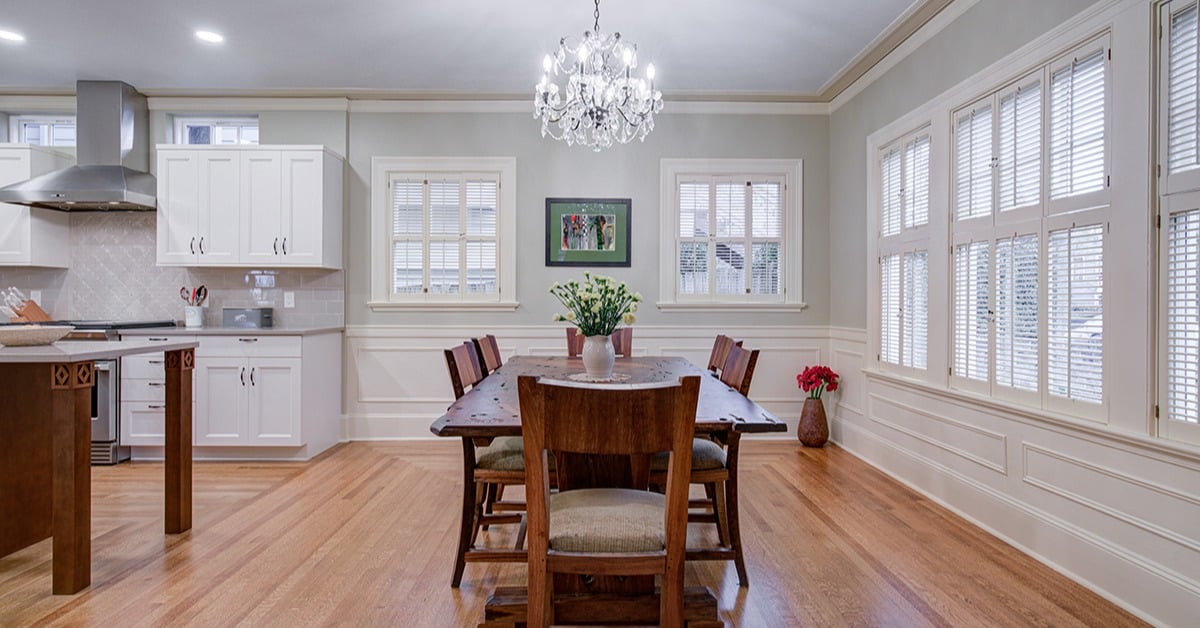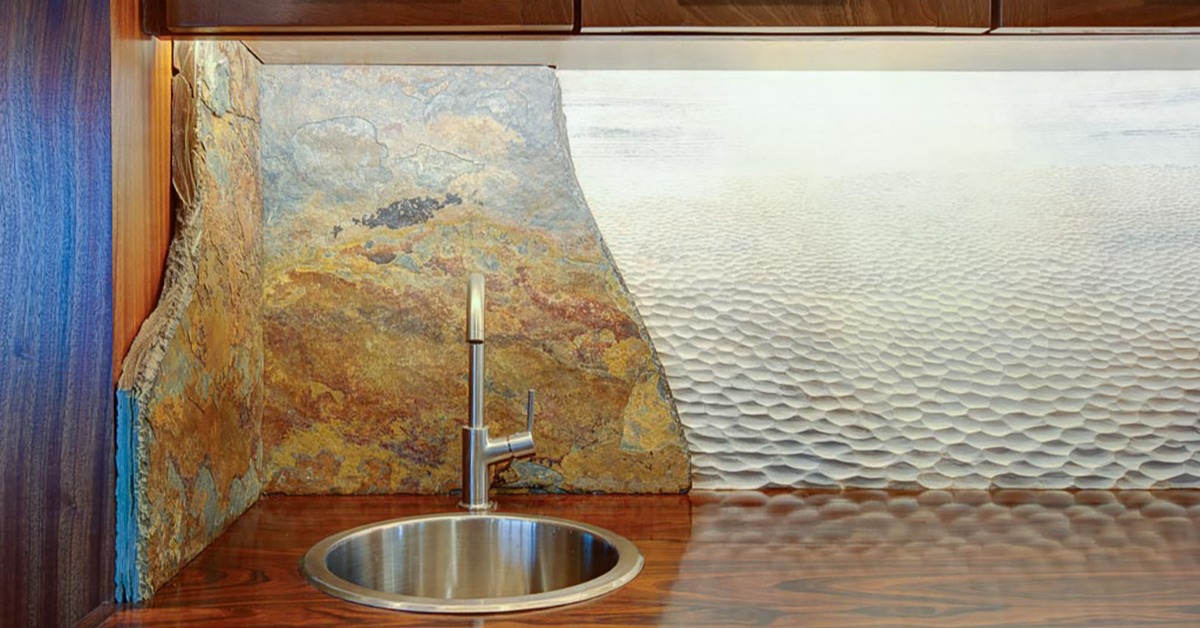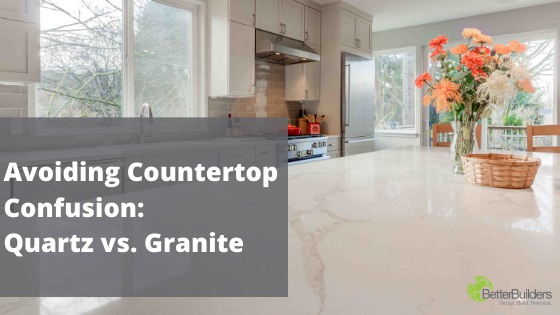The average kitchen remodel will have homeowners making between 60 - 150 decisions. Open shelving vs. traditional cabinetry is just one of these choices, and unbeknownst to most people, there’s a lot to consider when trying to make the right decision. To help you out, we’ve compiled a list of 12 pros and cons that will aid you in making the right decision for your lifestyle.
![]()
Pros of Open Kitchen Shelving
1. Open Shelving Makes a Small or Dark Kitchen Feel Larger
Open shelves can allow more light in from widows that closed cabinets would have blocked. Brightening up your space typically helps the room feel larger.
2. Open Shelving Can Be a Great Option for Complex-Shaped Spaces
Custom cabinets can be very expensive, so if you have a unique shape to work with, open shelving might be the more cost-effective option. Open shelving can also be added to spaces where a closed cabinet wouldn't have worked, like above the sink or cooking station.
3. Open Shelving Can Be Less Expensive Than Closed Cabinets
Open shelving can be more cost-effective than traditional cabinets in terms of both material and labor costs. Open shelving uses less material than box cabinets and requires little to no hardware. Because open shelving doesn’t have to be custom designed and typically requires less labor to install, you see saving there as well.
4. Open Shelving Shows More Personality Than Closed Cabinets
When you choose open shelving, you choose to have your life on display. Open shelving certainly provides more styling opportunities. You can display dishes, showcase cookbooks, and incorporate more texture and color with whatever you place on the shelves. You can also choose unique materials for the shelves, like teak, that would be incredibly expensive as closed cabinets, or materials that cabinet makers wouldn’t normally use, like driftwood.
5. Open Shelves Highlight the Wall They’re Attached To
Open shelving is perfect for creating a gorgeous feature wall. If you have a fun backsplash or bold paint color, open shelving will show off more of your feature wall than box cabinets would.
6. Easy Access to the Things You Use Everyday
Out of sight, out of mind. With open shelving, you can see the tools and equipment that you have, which will make you want to use them more often.
Cons of Open Shelving
1. Everything is On Display
Just because you have the space to display something doesn’t mean you should. Certain kitchen items aren’t necessarily things you or your guests want to look at daily.
2. Open Shelves Can Be Costly
Because open shelving stands out, it’s important to choose high-quality material that will not look cheap. While open shelving overall may still be cheaper than traditional cabinets, the cost for single shelves of unique or high-quality materials can go up significantly.
3. May Require More Styling and Organization
Do your dishes match? Do you have chipped glasses or flatware? Are your pots and pans stained? Do you know how to style a shelf so that it looks good? Styling open shelving is more complicated than you think!
4. Open Shelving Requires Regular Cleaning
Dust collects on whatever is displayed, which means drinking glasses and dishes may need to be cleaned every time you use them, before and after. Be prepared to take everything off the shelf regularly and wipe everything down, including the shelf.
5. Open Shelving Provides Less Storage Than Closed Cabinets
Open shelves typically aren’t as deep as a cabinet box, immediately sacrificing valuable storage space. Closed-in cabinets allow you to stack items up higher and use additional organizers behind closed doors. These are no longer feasible options with open shelving.
6. More Stuff, More Problems
Open shelving is better suited for someone who practices a minimalist lifestyle because too much clutter makes a kitchen feel cramped and small. If you have multiple dish sets, every kitchen gadget under the sun, and can’t pair down, open shelving might not be for you.
Design Your Kitchen to Fit Your Lifestyle
Selecting open shelving as your kitchen storage solution is more than an aesthetic design selection; it’s a commitment to a lifestyle. It’s important to consider each of these points before beginning the lengthy process of designing your new kitchen.
When you’re ready to begin your kitchen renovation journey, download our eBook, “The Kitchen Renovation Handbook: 10 Steps to Design the Kitchen of Your Dreams.”

